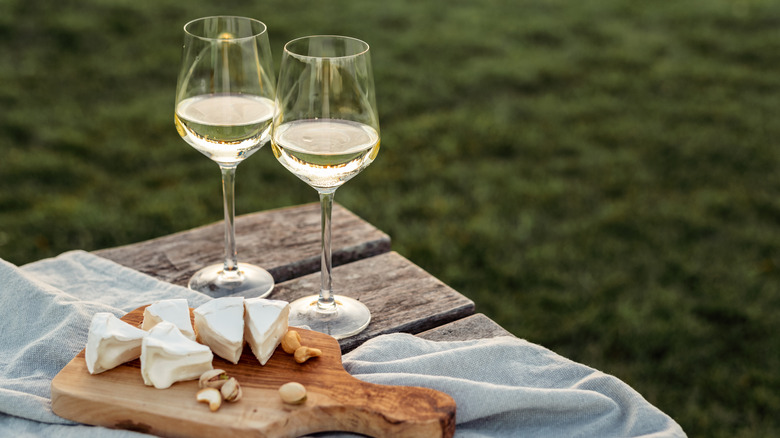What It Means When Someone Calls A Glass Of Wine 'Lean'
At a nice restaurant or trendy wine bar, sometimes it feels like you need a PhD in wine theory before you can even order a glass. Confronted by a fifteen-page wine list, it can be easy to simply order the second-cheapest wine from the only region you can pronounce. But perhaps you've plucked up the courage to ask your bartender or sommelier to recommend something based on the few descriptors you learned from a TikTok wine influencer, only for the somm to come back at you with a list of buzzwords that make it sound like they're describing an album or a piece of furniture rather than a bottle of wine.
If you can't understand what might make a Shiraz chewy or a Rhone rustic, new vocabulary might be to blame. Punch chalks this up to a battle of words between old guard somms with their scientific and ultra-specific dictionary terminology, and hip (but often equally pretentious) folks in the natty wine scene who opt for more conceptual words that hope to illustrate the general feeling of a wine. These wines might be brutal, mousey, or glou-glou, depending on who you ask (per MYSA).
One up-and-coming term that can be easily misunderstood is "lean," which doesn't have anything to do with your ideal body type or your preferred cut of beef.
Lean wine can be good or bad
"Lean whites are steely, like marathon runners, or they're slightly on edge, like a broke college student trying to escape dinner barely spending anything," says Rebekah Pineda, brand and content manager at natural wine shop Domestique (per Wine Enthusiast), going on to say that, "As a minimalist, lean is the highest compliment reserved for old-vine, grey-slate Riesling, or the affordable Pépière Clos de Briords [Muscadet]." In less flowery language, these are wines that are sharper and slimmer, prioritizing focus over balance, and narrowing in on a specific flavor profile without offering a wide range of fruity tasting notes (via Sommeliers Choice Awards).
The term "lean" generally refers to light-bodied wines, which tend to be high in acidity and low in tannins, and offer less of a creamy mouthfeel than a medium- or full-bodied wine (per Wine Folly). Calling a wine lean can be a compliment or a criticism, and when critical, the term indicates that a fruity element is missing, according to Wine Spectator.
The Providence Journal recommends a few Italian wines for something lean and crisp, such as Pinot Grigio, Vermentino, and Soave, which pair well with lighter meals like shellfish, chicken, salads, or pasta dishes in a white sauce.

